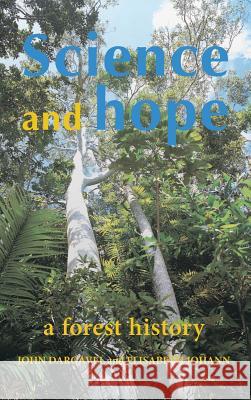Science and Hope: A Forest History » książka
Science and Hope: A Forest History
ISBN-13: 9781874267737 / Angielski / Twarda / 2013 / 278 str.
This book tells the story of the hopeful science and trusting art of forestry. It is a story about the hopes of foresters and other scientists to understand the forests more deeply, and about their unspoken trust that their knowledge could ensure an enduring sylvan future. Much has been written on the origins and development of modern forestry in various countries, and on the people and institutions involved, but there is little in the forest history literature that explains what the science actually is. Forest knowledge has an ancient history documented since classical times and applied within the intricate social and legal systems of medieval Europe. This volume is concerned with the modern form of forest science, founded in Europe early in the nineteenth century, when regimes for managing the forests, that could be traced to the ancient world and had flourished in the Middle Ages, were disrupted. New ways had to be found. Foresters have tried to know their forests scientifically for over three centuries and have hoped to apply their knowledge to good effect, even though they could not live to see the futures they envisioned. How far did their scientific understanding enable a sylvan future? What, over the three centuries discussed in this book, were their successes and failures? And now what might the future hold for forest science and its application? This is no tale of triumph: the outlook for the world's forests is too bleak for that. While many forests are flourishing, the climate is changing, tropical forests are disappearing, others are degrading, species are being lost, governments dither, international conferences fail. This is another, longer story - one of inquiry, of science and persistent endeavour to find a better future for the forests.
This book tells the story of the hopeful science and trusting art of forestry. It is a story about the hopes of foresters and other scientists to understand the forests more deeply, and about their unspoken trust that their knowledge could ensure an enduring sylvan future. Much has been written on the origins and development of modern forestry in various countries, and on the people and institutions involved, but there is little in the forest history literature that explains what the science actually is. Forest knowledge has an ancient history documented since classical times and applied within the intricate social and legal systems of medieval Europe. This volume is concerned with the modern form of forest science, founded in Europe early in the nineteenth century, when regimes for managing the forests, that could be traced to the ancient world and had flourished in the Middle Ages, were disrupted. New ways had to be found.Foresters have tried to know their forests scientifically for over three centuries and have hoped to apply their knowledge to good effect, even though they could not live to see the futures they envisioned. How far did their scientific understanding enable a sylvan future? What, over the three centuries discussed in this book, were their successes and failures? And now what might the future hold for forest science and its application? This is no tale of triumph: the outlook for the worlds forests is too bleak for that. While many forests are flourishing, the climate is changing, tropical forests are disappearing, others are degrading, species are being lost, governments dither, international conferences fail. This is another, longer story - one of inquiry, of science and persistent endeavour to find a better future for the forests.











